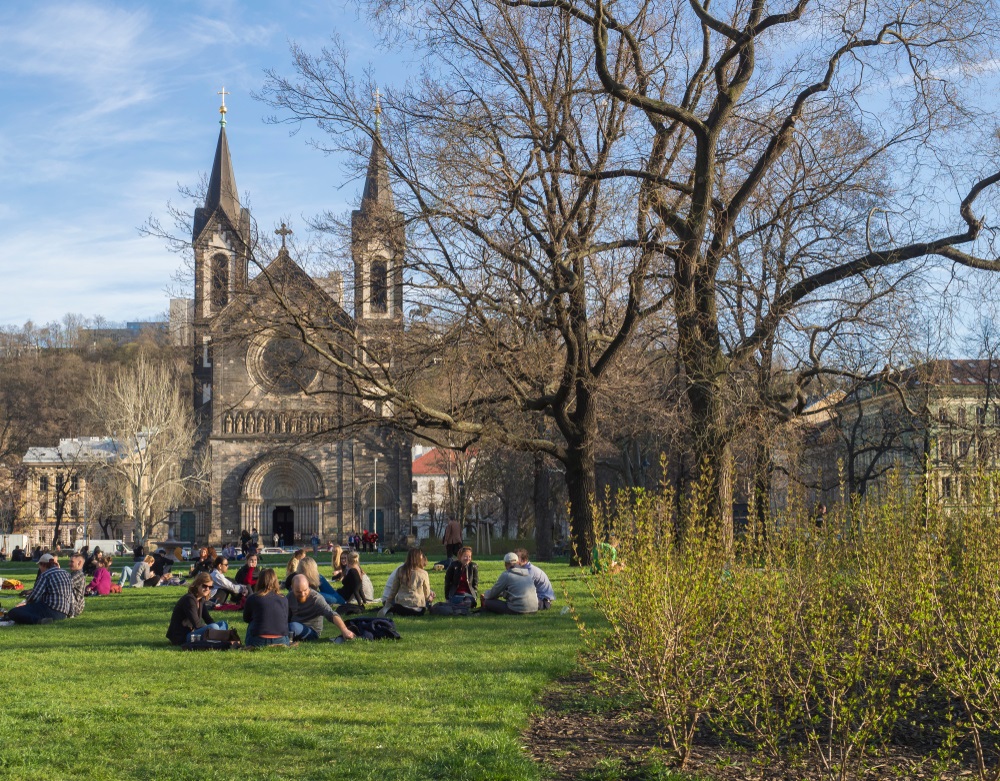Trio Bohémo
Programme
- Josef Suk: Piano Trio in C minor Op. 2
- Bohuslav Martinů: Piano Trio No. 3 in C Major H 332
- Astor Piazzolla: The Four Seasons of Buenos Aires
Performers
- Matouš Pěruška - violin
- Kristina Vocetková - cello
- Jan Vojtek - piano
Price
Expected end of the event 12.15
No intermission
Successful year 2021
The young chamber ensemble Trio Bohémo will be welcoming listeners at an unconventional venue on the premises of the publisher Economia. “At the concert, we will be playing a highly varied programme that will be attractive for the audience and will cover the musical developments of one century”, says the violinist Matouš Pěruška concerning the programming. “We are really looking forward to the music of Astor Piazzolla, whose works are influenced by many styles and yet are still unique!” adds the cellist Kristina Vocetková.
Trio Bohémo was founded in early 2019, and just a few months later it won second prize at the prestigious Gianni Bergamo Competition in Lugano, Switzerland. The year 2021 was very successful for the ensemble, which won a prize for the best interpretations of works of Viennese Classicism, music by Bohuslav Martinů, and modern Czech chamber music at the ISA Festival in Austria. A few days later it won an international competition for the Filippo Nicosia Award in Italy. That September, the trio won first prize and the audience prize at the Johannes Brahms International Competition in Austria, and in October 2021 it won an international competition for the Parkhouse Award in London, thanks to which it will be appearing at London’s prestigious Wigmore Hall. In 2021 it was also selected for a project of the Britten-Pears Young Artist Programme. Since 2020 the ensemble has been a participant in the European Chamber Music Academy, giving concerts all over Europe under its auspices (e.g. at the Nagyterem Concert Hall of the Franz Liszt Academy in Budapest and the TivoliVredenburg Hall in Utrecht), and it has the opportunity to work with Europe’s best chamber music professors, including Johannes Meissl, Avedis Kouyoumdjian, Hatto Beyerle, and Patrick Jüdt. In the 2021/2022 season the trio will make its debut at Vienna’s famed Musikverein and will appear at Lago Maggiore Musica (Italy), the Gent Festival van Vlaanderen (Belgium), and the Schwarzwald Musikfest (Germany).
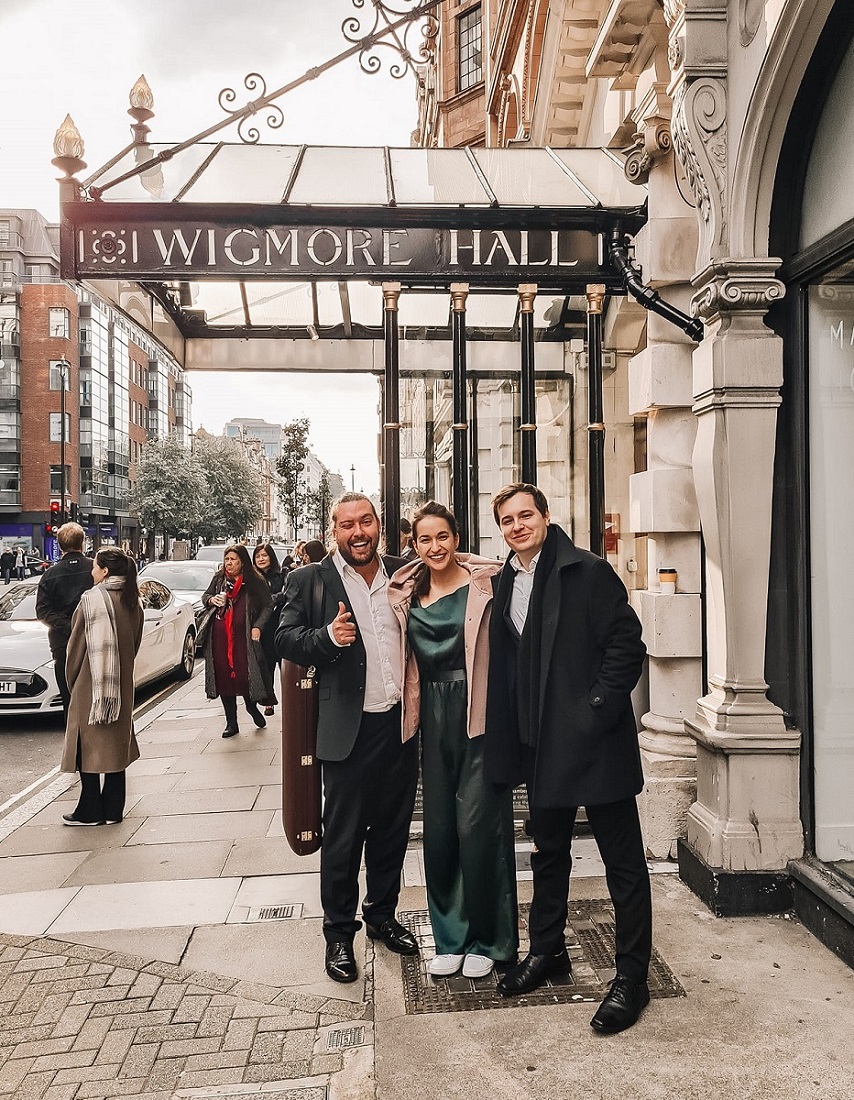
Budapest has connected them
Although all three members of the ensemble are from the Czech Republic, they met while studying in Budapest, Hungary. The violinist Matouš Pěruška is a graduate of the Academy of Performing Arts in Prague, where he is currently studying in the doctoral programme. At the same time, he is studying in the postgraduate chamber music programme at the Franz Liszt Academy of Music in Budapest. During his studies he has taken many masterclasses led by such artists as Ivry Gitlis, Ray Chan, Ivan Ženatý, Václav Hudeček, Michael Frischenschlager, Hagai Shaham, and Milan Šetena. He has taken part in several national and international competitions (Verona, Pörtschach, Prague Spring). In 2019 he was invited to Spain as the guest concertmaster of the orchestra Camera Musicae. Since 2017, he has been concertmaster of the Haydn Ensemble.
The cellist Kristina Vocetková is a graduate of the Prague Conservatoire (where she studied under Prof. Jaroslav Kulhan), and she earned a master’s degree at the Franz Liszt Academy of Music Budapest, where she is still continuing her post-graduate studies of chamber music. She has taken masterclasses with artists including Claudio Bohorquez, Richard Aaron, Raphael Wallfisch, David Geringas, Jérôme Pernoo, and Romain Garioud. Besides playing chamber music, she also is active as a solo performer. She has appeared with several of the leading Czech orchestras (the Suk Chamber Orchestra, Barocco sempre giovane, the Pavel Haas Chamber Orchestra, and the North Czech Philharmonic in Teplice) and in concert halls in Slovakia, Austria, Hungary, Croatia, Switzerland, Slovenia, Italy, Germany, France, and the USA. She is a laureate of more than 20 international competitions (Prague Junior Note, the Heran Cello Competition, the Rudolf Matz Competition in Dubrovník, the Sforzando Music Competition in Berlin, the Bohuslav Martinů Foundation Competition, and the Anton Rubinstein International Competition in Berlin).
A native of Brno, Jan Vojtek began playing piano at the age of five. At present he is a student in the master’s programme at the Franz Liszt Academy of Music in Budapest in the studios of professors Némethy Attila and Réti Balázs. He has had success at a number of competitions such as Prague Junior Note (2003), the International Virtuosi per Musica di Pianoforte Competition (2007), the Kaunas Sonorum International Competition (2011), the Prague Talent Competition (2012), and the Euregio Piano Awards (2018). In 2017 he made a month-long study visit to the Tokyo College of Music in Japan. He has also taken part in prestigious international piano courses in Tel-Hai (Israel), where he won the Marina Bondarenko Memorial Prize as the best course participant. He has made solo appearances with the Brno Philharmonic, the Moravian Philharmonic in Olomouc, and the Györ Philharmonic Orchestra in Hungary.
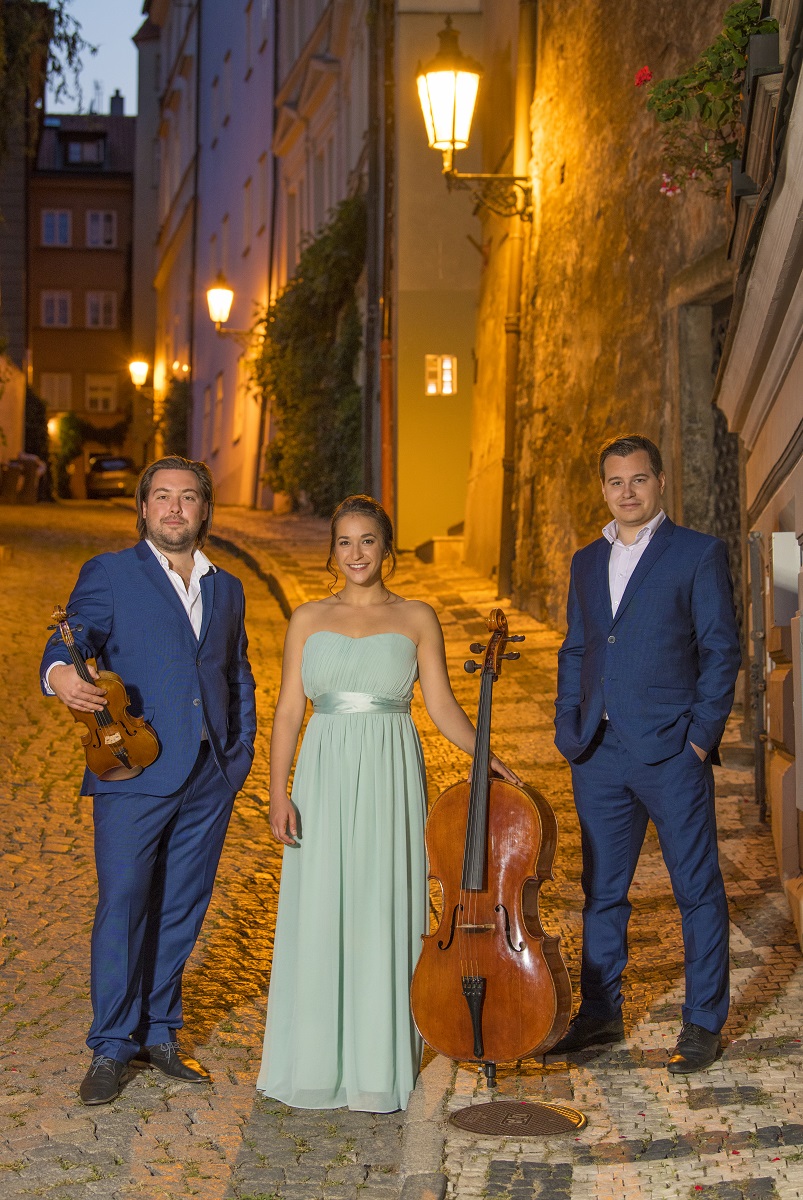
A work filled with youthful emotions
The concert opens with the Piano Trio in C minor by Josef Suk (1874-1953). “It bears the opus number two, so it is a work filled with youthful emotions”, says Kristina Vocetková. “The second movement is the fulfilment of the motto ‘there is beauty in simplicity’, but Suk’s harmonic progressions take my breath away”, she adds. The young composer originally wrote the trio in four movements while still a student at the conservatoire in 1889. It is dedicated to the Prague physician H. Hersch, in whose home Suk was playing at the time. Then in 1890 and 1891 the work underwent a number of revisions, the most important of which was the removal of the Scherzo. In its final three-movement form, the trio was first heard at the conservatoire in 1891 at a musical evening for composition students. During his studies in Antonín Dvořák’s composition course, Suk again revised the work and performed it at a concert of the Harmonie Vocal Society in the Prague neighbourhood Královské Vinohrady. In 1907 Mojmír Urbánek published the work, which was titled Petit trio at Suk’s request. “In the third movement, I enjoy discovering compositional similarities to Johannes Brahms”, says the pianist Jan Vojtek.
Next will be the Piano Trio in C minor by Bohuslav Martinů (1890-1959). “He is one of the most popular Czech composers, and I find the compositional sophistication of his Third Trio to be absolutely exceptional”, declares Matouš Pěruška. Martinů composed the trio in New York in the spring of 1951 and dedicated it to the American pianist and composer Leopold Mannes, with whom he had spent some time in Edgartown on the island Martha’s Vineyard in the state Massachusetts during the first year of his stay in the United States. It is undoubtedly one of Martinů’s masterpieces in the field of chamber music, with its spellbinding, strikingly original rhythms and its refreshing melodies, for which the composer found inspiration in Moravian folk songs.
The concert will conclude with The Four Seasons of Buenos Aires by the composer and bandoneon player Astor Piazzolla (1921-1992), who leads listeners into the captivating world of the Argentine tango. During the 2021-22 season, the entire musical world will commemorate the 100th anniversary of his birth and the 30th anniversary of his death.
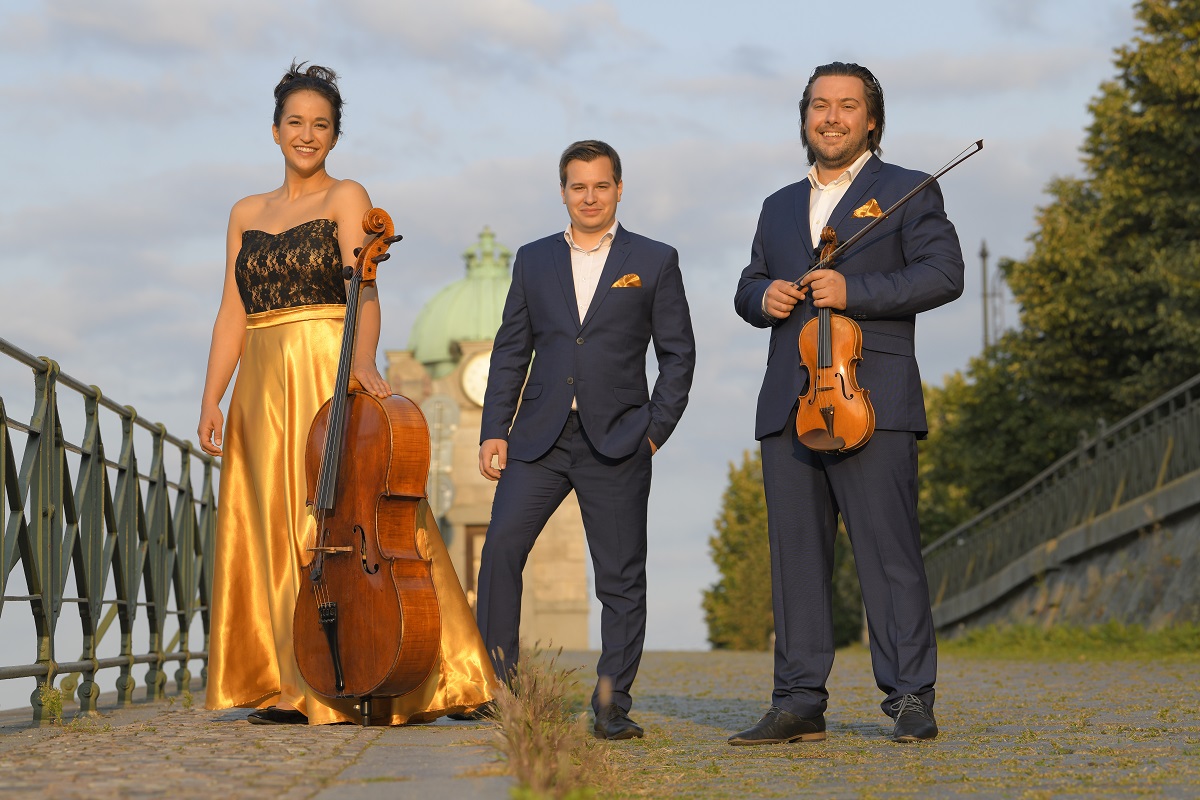
A unique space
The premises of Economia media house – the publisher of Hospodářské noviny, Respekt and Ekonom and operator of the Aktuálně.cz news website – was at one time the Kotlárna industrial hall. The firm behind its transformation is the celebrated Spanish architectural and urban design practice Ricardo Bofill Taller de Arquitectura, in association with the Czech studio AED Project. Kotlárna [boiler shop] is a building with an impressive history dating back to the days of the Austro-Hungarian Monarchy. The factory used to construct steam generators, which were then distributed throughout the Empire. What makes the project so unique is the fact that the space was not divided up during the conversion; rather, it remained integral and its original character has been preserved. Today, information is produced here instead of boilers. The concert will be held in part of the building known as Backstage, which editors, editorial staff and other personnel at the publishing house use for meetings and for relaxation purposes; this area adjoins the DVTV broadcasting studio.
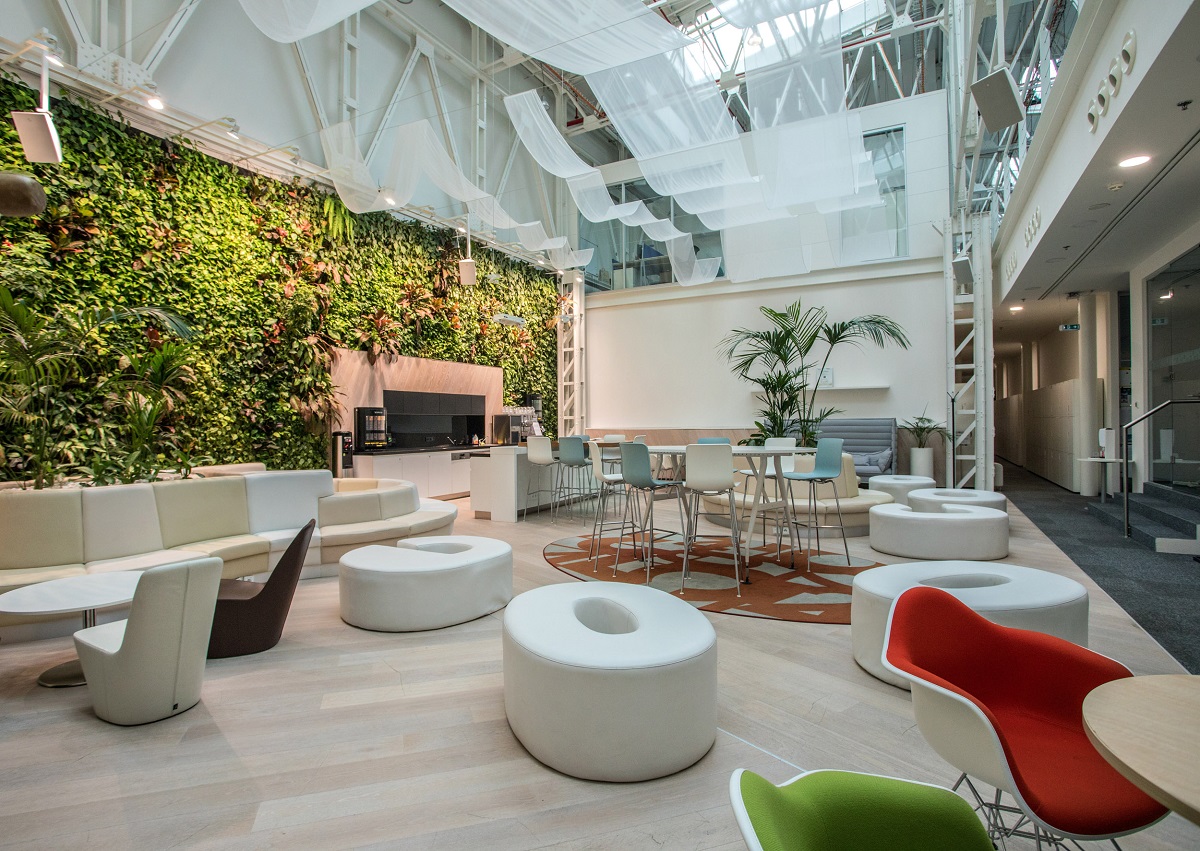
The pulsating Prague quarter – Karlín
The current quarter of Karlín has a luxurious appearance. Modernism in a West European style surrounds you everywhere. However, a few years ago, you would not have recognised Karlín. There were grey tenement blocks and dusty industrial plants everywhere. But today, it is centre of social and cultural life. Karlín got its second chance in 2002 after the devastating Prague floods primarily flushed this quarter neighbouring the Vltava. Several houses had to be demolished, and it took an entire year before life returned to normal. Since then, Rohanské nábřeží has transformed into a luxurious office quarter, where the place of tenement blocks and industrial halls has been taken by flashy modern buildings. However, even today, you still find historical monuments here. The most important is the Negrelli Viaduct, which connects Masaryk Railway Station in Prague with Bubny via Štvanice Island. It is historically Prague’s first railway bridge across the Vltava River and is currently the second oldest Prague bridge across the Vltava. It is also the longest railway bridge, and the third longest bridge in the Czech Republic overall. It is 1,110 metres long, which made it the longest bridge in Europe until 1910. Also worth seeing is one of the biggest theatrical scenes in Prague, the Karlín Musical Theatre, Forum Karlín – a multifunctional space for cultural and social events, the five-storey Karlín Barracks from 1848, the extensive Baroque style Invalidovna from 1737, the Church of Saints Cyril and Methodius from the mid-19th century, which is one of the biggest church buildings in Bohemia, and the New-Romanesque Karlín Synagogue from 1861. Farmers’ markets are regularly organised on Karlín Square (Karlínské náměstí) in front of the Church of St. Cyril and Methodius.
For more tips on interesting places and trips around the Czech Republic go to visitczechrepublic.com website.
